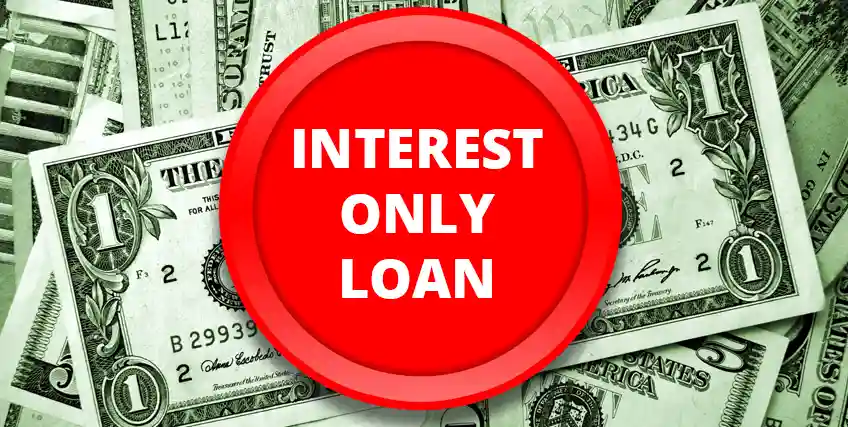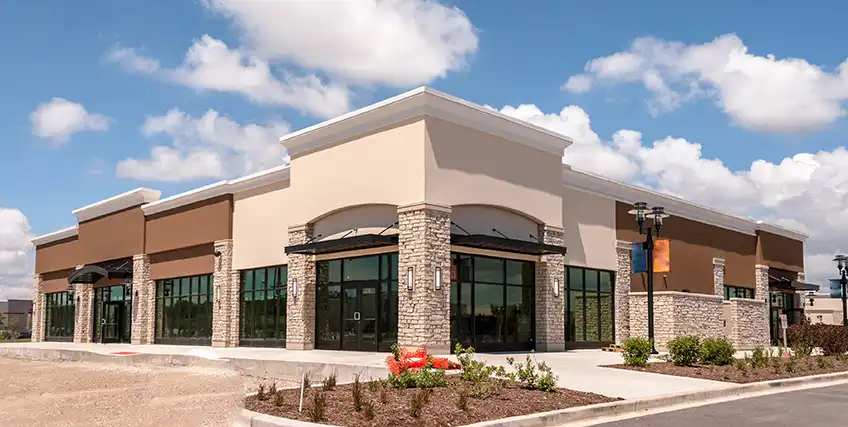What You Will Need When Applying for Commercial Business Loans
December 4, 2024 | Last Updated on: December 4, 2024

When your business is ready to expand, you might consider a commercial business loan. Whether you re looking for a commercial property loan to open a new storefront location, a loan to buy a business, or you just need more working capital, taking out a loan can feel intimidating. Especially for business owners who have never looked into financing options before.
To make it easier on you, we take a deep dive into the steps you need to take to secure a commercial business loan or commercial property loan.
In this article:
- Understand the commercial lending process and what you ll need to get approved.
- Learn common commercial loan terms and commercial lending
- Get a focus on commercial property loans to expand your business s operations.
What Types of Commercial Business Loans are Available?
There's a famous saying in the business world: In order to make money, you have to spend money. This saying isn t far-fetched. But most people don t have startup capital just lying around ready to use. That s where business financing comes in. It can help you secure funds for commercial real estate, a line of business credit, inventory, or anticipated payroll.
There are many different types of commercial loans you can apply for, many of which are commercial property loans:
- Commercial Real Estate Loan
- Equipment Financing
- Term Loan
- Business Line of Credit
- SBA Loan
- Commercial Auto Loan
- Bridge Loans (to help fill the gap between what the company needs right now and their anticipated needs in the future)
- Commercial Construction Loans
- Inventory Loans
Regardless of your needs as a small business owner, this list should provide you with ample means for receiving funding.
Things to Consider Before Applying
Applying for a commercial business loan differs from a personal loan or a house mortgage. Lenders take a considerable risk with businesses. As the economy swings, a company could be here and thriving one day and be gone the next. They consider this when deciding whether to work with you to provide financing.
Many traditional lenders like banks or credit unions won t work with new businesses as they don t have evidence of cash flow to pay back the loan. Even established companies will need to provide substantial proof that not only are they bringing in revenue, but they re also growing as an organization.
One benefit of commercial property loans is that the property purchased with the loan may be used as collateral to secure the loan. Such commercial loan terms protect the lender by allowing them to repossess the property if you default on the loan.
What Do Lenders Look for When Applying for Commercial Loans?
The hard reality is that the business loan application process can be long and tedious. As a business owner, the chances of getting approved for a commercial loan drop significantly if you have a poor personal credit history. Why? Because the first thing lenders will look at when processing your application is your ability to pay back the loan.
Some of the most important factors in determining borrower eligibility include:
- Personal finances
- Business revenue
- Credit score
- Credit history
- Unpaid debt
- How much money you ve personally invested into the business
- Business plan
Lenders will also examine your personal experience and character to assess whether you make a responsible investment. This could include your education, business experience, and references. When business owners invest in the organization, lenders have a more positive take on the owner s chances of paying the loan back. Because of this, business capital will be scrutinized extensively. Lenders will want to look at how much you ve invested in your business stocks and bonds, equipment, and property.
Before you apply for commercial lending, it s imperative to work on your personal credit score and pay off as much debt as you can. If you can show that you have a healthy relationship with money and pay your bills on time, you ll have a better chance of getting what you need.
Finally, lenders will also look at the external conditions surrounding the business, including conditions that the business owner may not have control over, such as current economic conditions, competition, the health of the industry your business is in, and the local environment. If you, as the business owner, can prove that the market conditions for your business are on the upswing, you increase your chances of securing a commercial business loan.
Securing Commercial Loans
Many lenders require some kind of collateral to secure a loan. With commercial property loans, the commercial real estate or equipment attached to the loan typically becomes collateral for the bank to repossess if you cannot repay the loan.
In other cases, lenders may accept both tangible and intangible assets to be used as collateral, such as vehicles, real estate, accounts receivable, and inventory. You can also make a personal guarantee by providing your own assets as collateral that are unrelated to the business.
Current commercial loan rates are getting more competitive as the Federal Reserve lowers the prime rate, but collateral is a good way to lock in better commercial lending rates.
How to Find a Lender
When looking for a lender, the first step will be to identify the type of loan you re looking for based on your business needs and the loan amount you seek. Not all lenders provide the same kinds of business loans.
Many people start with the U.S. Small Business Administration (SBA) when securing their first commercial loan. That s because the SBA is well-versed in helping small businesses start and expand later on. They have insight into current market trends, provide counseling and education, and have many small business loans available. Plus, their interest rates are typically lower than other lenders.
Whether you re looking for a commercial property loan, term loan, or other type of funding, SBA loan programs work with a range of lenders and funding types.
That said, both the SBA and traditional financial institutions tend to have strict qualification requirements, including high minimum credit score requirements and minimum time in business. You should start by talking with the bank you currently use, or seeking an alternative online lender.
What Paperwork Do You Need Before Applying?
It s smart to have all paperwork handy before you start the business loan application process. This will ensure you accurately input information from your business financials and that you re ready for any unexpected questions.
Whether you re pursuing a commercial property loan, a loan to buy a business, or a more flexible loan, you will want to have the following ready before you apply:
- Your Resume: Believe it or not, your resume can give lenders an idea of your previous business experience and help them decide if you re a lower or higher-risk applicant. Suppose you were a manager, owned other businesses, or have your education added to your resume. In that case, this little document can provide a world of knowledge about who you are and what experience you bring.
- Business Plan: It doesn t matter if this is your first loan application or your 50th. Having your business plan handy will allow lenders to have an inside peek into your strategy for growth, operations, and target customers, as well as analytical tools like a SWOT analysis (Strengths, Weaknesses, Opportunities, Threats).
- Personal Credit Report: Even though your lender will pull up this information independently, you must also access it before applying. You ll want to comb your report for any errors or inaccuracies thoroughly. If you find anything lowering your personal credit, you ll want to get that fixed or pay down credit cards before applying.
- Business Credit Report: Similar to the personal credit report, even though the lender will pull this report themselves, you should check it for anything inaccurate.
- Personal and Business Income Tax Returns: Most programs will require that you submit both personal and business tax returns with a commercial loan application.
- Financial Statements: You ll want your balance sheet, profit and loss statement or income statement, cash flow statement, and business bank statements attached to the application. There should be at least one year of statements, though if you have two years, attach both. This can better show your business growth.
- Accounts Receivable and Accounts Payable: Commercial lenders want to see your current assets; your accounts receivable are no exception. They want to know where your flow of revenue is coming from and where it s going, so make sure you have both of these documents ready.
- Collateral: If your lender will require collateral, be sure to have any necessary paperwork ready and available before applying. Again, with a commercial property loan, the property itself can often serve as collateral.
- Legal Documents: All legal documents for your organization should be included with the application. These can consist of your business license, permits, articles of incorporation, franchise agreements, third-party contracts, employer identification number, and commercial leases.
Having all of these documents ready will help streamline the loan application process and may help secure the best commercial lending rates available.
How to Apply for a Commercial Business Loan
Commercial lending is relatively accessible in this day and age. The process should usually look like this:
- Determine how much funding you need: If you re applying for a commercial property loan, you must figure out how much you can afford for a down payment and calculate the difference between the property s value plus any loan servicing fees. For other loan types, figure out whether you need a lump sum or continual access to working capital, and how much will actively help your business rather than drag it down with debt.
- Compile paperwork: It s a good idea to compile all of the paperwork we mentioned in the previous section ahead of time. That way, you ll check your credit score, assess your debt, and have a better idea of where you might be eligible to apply.
- Compare lenders: Different lenders have different requirements for different loans. Just because you qualify for one interest rate somewhere doesn t mean you won t get a higher interest rate elsewhere. Make sure you understand business loan requirements for commercial property loans, term loans, business lines of credit, or any other financing type.
- Apply: While many lenders allow you to apply online, it s often good to schedule a one-on-one with a loan officer. Be prepared for scrutiny, though. Commercial lenders are very picky about who they decide to approve loans for. Because of this, you are going to want to bring your A-game.
- Wait: Finally, you just have to wait. The commercial lending process can be slow, especially if you re applying for a very high-value commercial property loan amount. If you want to accelerate the process, you may consider an online lender that can render decisions faster.
Conclusion
Applying for a commercial property loan or any other type of small business loan may enable you to take your business to the next level. The process may seem overwhelming at first, but once you understand the requirements, it can greatly streamline the process. Yes, you ll have to gather your paperwork and it may take several meetings to get the final approval so it will take some time. However, now that you know what to expect it should decrease your stress and make the process manageable. And remember, you don t have to do this alone. You can always get a professional to help you.
FAQs
What is a commercial loan?
A commercial loan is a loan taken out by a business to pursue business interests. There are many commercial loan options, including commercial property loans, working capital loans, business lines of credit, and traditional term loans.
Should I get a commercial loan?
Business debt can be intimidating for some small business owners. However, taking on debt can help finance expansion, production increases, customer acquisition projects, and much more. Debt is often necessary to help your business grow.
How do you get a commercial loan?
Getting a commercial loan is similar to getting a personal loan. First, you must determine how much funding you need and what type of financing is right for your business. Shop lenders online or leverage existing relationships with financial institutions. Gather your paperwork, apply, and then wait!
What paperwork do you need for a commercial loan?
Before applying for commercial lending, you should gather your business s financial documents, your personal and business credit score (if applicable), personal and business tax returns, your business plan, legal documents, and personal resume.
Frequent Searches Leading to This Page
commercial loan terms, commercial lending rates, loan to buy a business, current commercial loan rates





